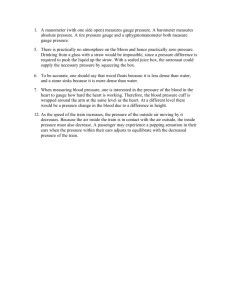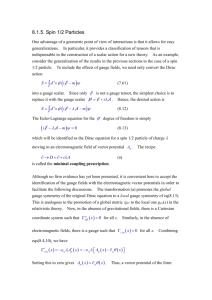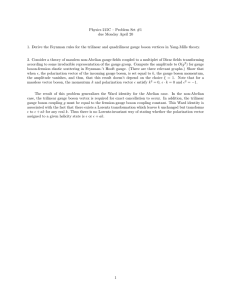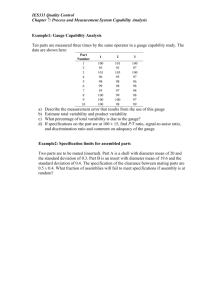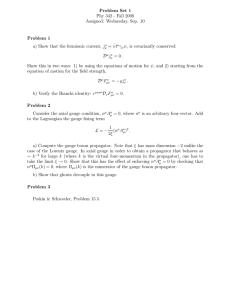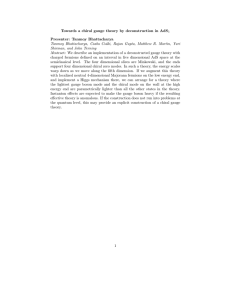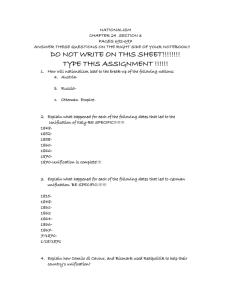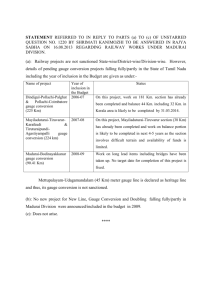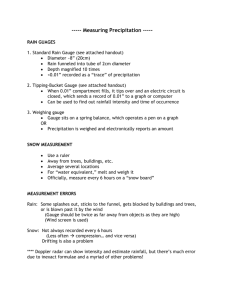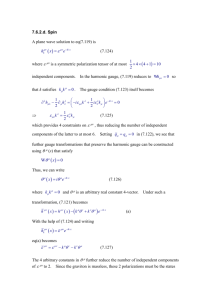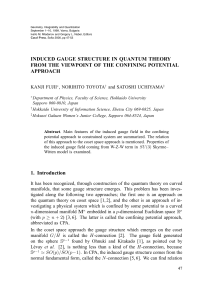PHY 7669: Quantum Field Theory II Spring Term 2013 Homework Set 6
advertisement
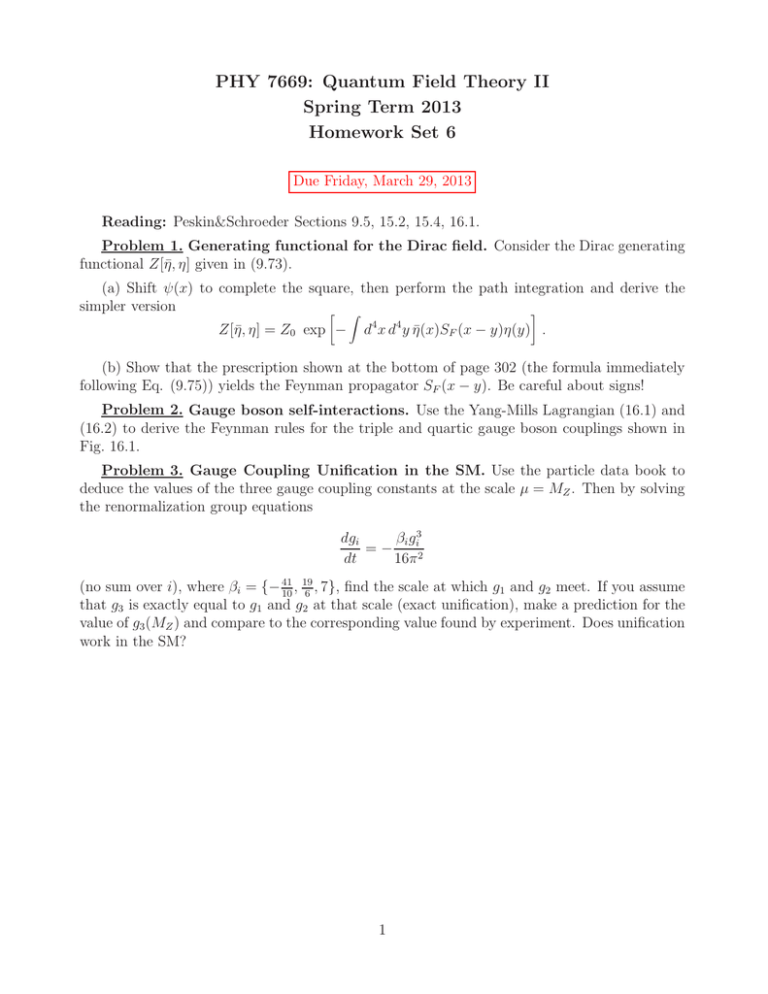
PHY 7669: Quantum Field Theory II
Spring Term 2013
Homework Set 6
Due Friday, March 29, 2013
Reading: Peskin&Schroeder Sections 9.5, 15.2, 15.4, 16.1.
Problem 1. Generating functional for the Dirac field. Consider the Dirac generating
functional Z[η̄, η] given in (9.73).
(a) Shift ψ(x) to complete the square, then perform the path integration and derive the
simpler version
Z
Z[η̄, η] = Z0 exp −
d4 x d4 y η̄(x)SF (x − y)η(y) .
(b) Show that the prescription shown at the bottom of page 302 (the formula immediately
following Eq. (9.75)) yields the Feynman propagator SF (x − y). Be careful about signs!
Problem 2. Gauge boson self-interactions. Use the Yang-Mills Lagrangian (16.1) and
(16.2) to derive the Feynman rules for the triple and quartic gauge boson couplings shown in
Fig. 16.1.
Problem 3. Gauge Coupling Unification in the SM. Use the particle data book to
deduce the values of the three gauge coupling constants at the scale µ = MZ . Then by solving
the renormalization group equations
dgi
βi gi3
=−
dt
16π 2
, 19 , 7}, find the scale at which g1 and g2 meet. If you assume
(no sum over i), where βi = {− 41
10 6
that g3 is exactly equal to g1 and g2 at that scale (exact unification), make a prediction for the
value of g3 (MZ ) and compare to the corresponding value found by experiment. Does unification
work in the SM?
1

